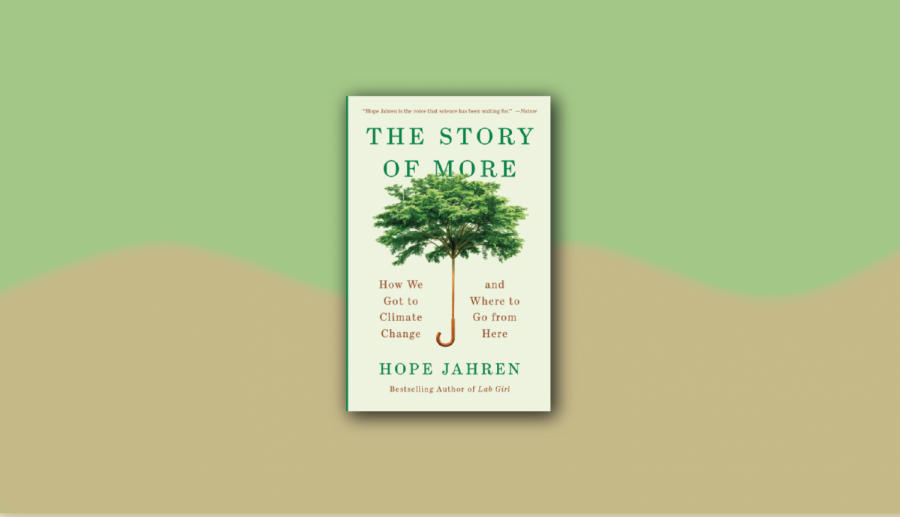Author, scientist Hope Jahren delivers One Book One Northwestern keynote
Daily file illustration by Joanne Haner
The award-winning scientist and author presented 15 facts she believes everyone should know about climate change.
October 29, 2021
Award-winning scientist and author Hope Jahren discussed how individuals can impact the course of climate change and how the Earth has evolved over the past 50 years at Thursday’s One Book One Northwestern keynote.
“The same energy that is propelling people to address violence and injustice is also propelling people to address climate change and environmental degradation,” Jahren said.
The One Book Steering Committee chose Jahren’s book “The Story of More: How We Got to Climate Change and Where to Go from Here” as this year’s read for the NU community. They selected the book from a collection of student-suggested titles on the topic of climate change.
The One Book One Northwestern program extends beyond the summer read. One Book pairs its title of choice with programming throughout the year for undergraduate and graduate students alike.
The keynote began with an introduction from McCormick Prof. Bill Miller, followed by Jahren’s presentation on the 15 facts she believes everyone should know about climate change.
Discussing topics from food consumption to carbon dioxide emissions, Jahren emphasized the impact individual people can have on the climate crisis. She said she believes limiting individual consumption is the best way to alleviate the effects of climate change.
“I don’t see how … the change that the science tells us we need can come about unless we are willing to change what we do on our end: what we buy, what we don’t buy, what we eat and what we don’t eat,” Jahren said.
Individuals can help shape policy and motivate institutions to adopt more climate-friendly agendas, she said.
While large corporations can have the biggest impact on the environment, they are often responding to consumer demands, Jahren told The Daily at a news conference.
“The road to climate hell was mostly paved with good intentions,” Jahren said. “It was mostly companies trying to make the things that people wanted to buy. It was mostly governments trying to build the infrastructure that people wanted to use.”
Jahren lives in Norway and would have had to fly to give the speech in-person, so the keynote occurred virtually to prevent unnecessary carbon emissions.
Weinberg freshman Elizabeth Egresits, who attended the webinar, said she was struck by the data illuminating changes the Earth has undergone in the last 50 years.
“The sheer volume of changes our world has gone through since 1969, not even 60 years ago, truly made me rethink how the next few decades will change and how much time we have left,” Egresits said.
One Book Director Nancy Cunniff and her team curated programming with related student groups, like Fossil Free Northwestern and GREEN House. This year’s events include a symposium on climate change, open-mic nights and film screenings.
Oftentimes, Cunniff said she connects interested students with courses related to the book’s focus. This year’s related courses include Political Ecology, Contemporary Energy and Climate Change, and Environmental Justice.
Jahren said she hopes the event series will encourage students to consider how they can change their lifestyles to be more climate-friendly.
“My big hope for the book is that it would get people talking, and that it would get them to examine their own energy use and the energy use of the institutions around them.” Jahren said. “It sounds to me that there’s a great deal of momentum toward that at Northwestern.”
Email: [email protected]
Twitter: @fionaroach03
Related Stories:
— One Book One Northwestern centers climate change in this year’s programming
— ‘The Story of More’ named as One Book One Northwestern for 2021-22












